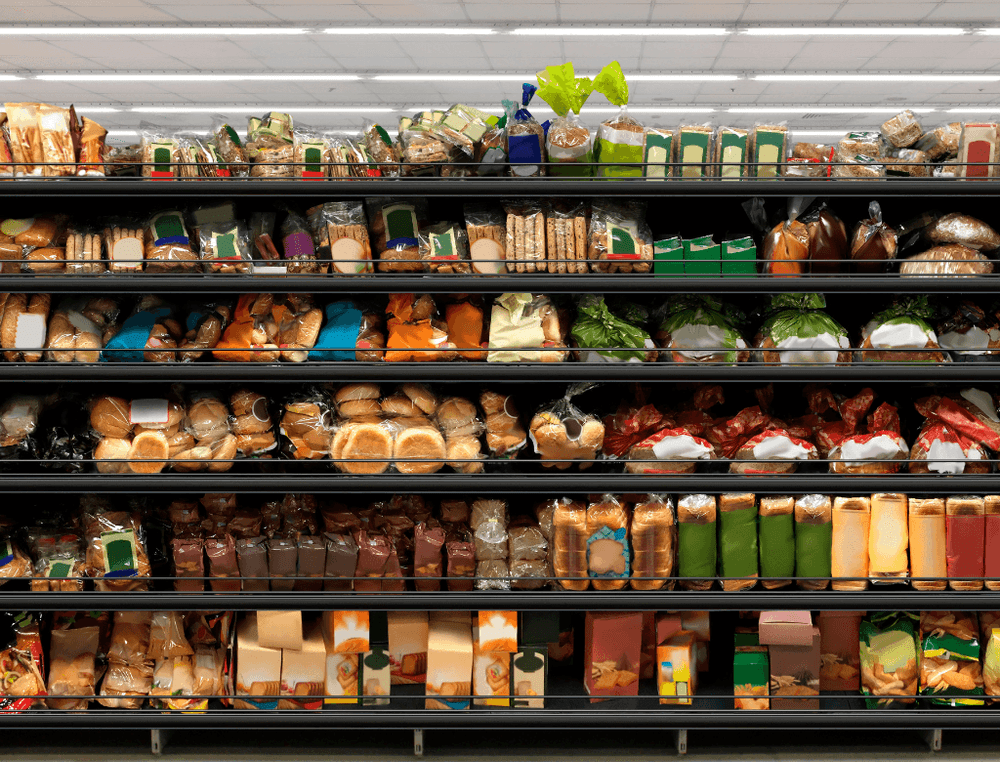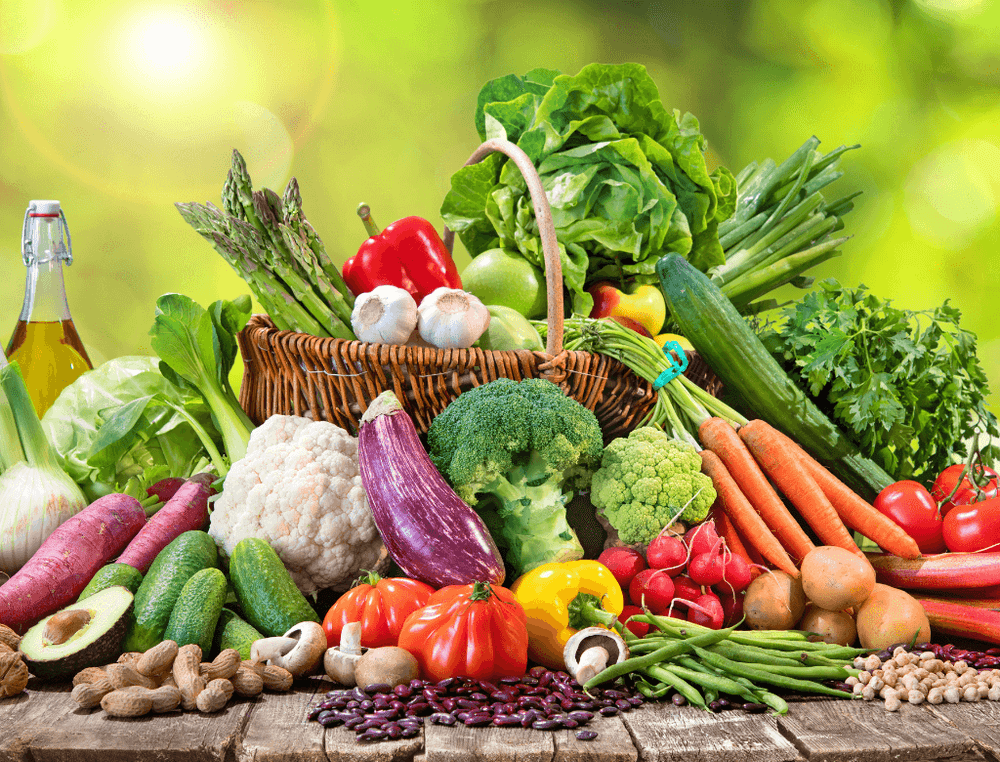Ce paradoxe peut sembler incompréhensible : comment manquer de nutriments essentiels alors que les rayons de nos magasins débordent de produits ? C’est justement là que se cache le problème. Derrière l’illusion d’un confort alimentaire, nos modes de vie, nos choix de consommation et les transformations de l’agriculture ont profondément modifié la qualité de notre alimentation.
Dans cet article, nous allons explorer pourquoi les carences nutritionnelles sont devenues si fréquentes, même chez les personnes qui pensent « bien manger ».

Une alimentation moderne déconnectée de la nature
L’alimentation industrielle a fait une promesse : celle de nous simplifier la vie. Prêt-à-consommer, aliments longue conservation, plats transformés, snacks pratiques… Mais cette promesse a un prix.
Derrière l’aspect rassurant d’un emballage bien conçu, la densité nutritionnelle réelle est souvent extrêmement faible. Il ne s’agit pas seulement de calories ou de sucres cachés, mais d’un appauvrissement profond en micronutriments : vitamines, minéraux, oligo-éléments, enzymes, acides gras essentiels…
Certains aliments sont tellement transformés qu’ils ne contiennent presque plus rien de vivant. Les fibres sont enlevées, les vitamines détruites par la chaleur, les graisses hydrogénées, les sucres raffinés omniprésents.
Ce déséquilibre progressif contribue à une faim cellulaire silencieuse : notre organisme cherche ce dont il a besoin, mais ne le trouve pas.
Les sols ne nourrissent plus comme avant
Un autre facteur déterminant est moins visible, mais tout aussi crucial : l’épuisement des sols.Depuis les années 1950, l’agriculture intensive a fait exploser les rendements au détriment de la qualité. Monocultures, engrais chimiques, pesticides et labours profonds ont déséquilibré les écosystèmes souterrains. Le sol, autrefois vivant et complexe, est devenu un support neutre.
Cela signifie que les plantes cultivées dans ces terres reçoivent moins de minéraux, notamment magnésium, zinc, sélénium, iode ou fer — des éléments essentiels à notre équilibre biologique.
De nombreuses études ont montré que la teneur en nutriments de certains fruits et légumes a chuté de 30 à 70 % en quelques décennies.
Même en mangeant « cinq fruits et légumes par jour », nous n’ingérons plus la même richesse qu’avant. La quantité ne compense pas la perte de qualité.
Le stress chronique : un facteur invisible mais décisif
Notre époque génère un niveau de stress quasi permanent : pression professionnelle, surcharge mentale, informations et notifications constantes, incertitudes économiques, fatigue…
Ce stress a un impact direct sur notre biologie. En situation de tension prolongée, le corps utilise davantage certains nutriments pour maintenir son équilibre :
Le magnésium est mobilisé en masse, tout comme les vitamines du groupe B, nécessaires au système nerveux.
La vitamine C s’épuise plus vite dans un contexte d’inflammation ou de fatigue chronique.
Le fer peut être mal absorbé en cas de déséquilibre hormonal ou digestif.
Ajoutez à cela un sommeil perturbé, une faible exposition à la lumière naturelle, un microbiote fragilisé par des antibiotiques ou une alimentation pauvre en fibres : c’est un cercle vicieux qui conduit à des déficits multiples.

Une digestion affaiblie par le mode de vie
Même si l’on mange des aliments riches en nutriments, encore faut-il pouvoir les assimiler.
Or, la qualité de notre digestion est souvent compromise : stress, repas avalés trop vite, déséquilibre acido-basique, sédentarité, manque de mastication… Autant de facteurs qui perturbent l’absorption des nutriments.
Les troubles digestifs sont d’ailleurs de plus en plus courants : ballonnements, reflux, constipation, intolérances… Ils sont souvent le reflet d’un déséquilibre de la flore intestinale, essentielle à la bonne assimilation des vitamines et minéraux.
Ainsi, une personne peut manger sainement et rester carencée.
Les populations à risque : bien plus nombreuses qu’on le pense
Les carences ne concernent pas uniquement les personnes âgées ou les populations précaires. Elles touchent aussi les adolescents, les femmes enceintes, les sportifs, les personnes végétariennes ou véganes, les travailleurs de bureau stressés, les personnes sous traitement médical prolongé...
Prenons quelques exemples concrets :
Une femme active, souvent stressée par la charge mentale, risque de manquer de magnésium, fer, zinc, B9.
Un adolescent en croissance peut souffrir d’un déficit en iode ou en vitamine D.
Un végétalien non supplémenté est souvent en déficit de B12 et d’oméga-3.
Un sportif qui transpire beaucoup perd régulièrement du zinc, du sodium, du magnésium.
Les carences modernes sont multifactorielles. Elles ne sont pas une question de “mauvaise hygiène de vie”, mais de conditions de vie devenues trop éloignées des besoins physiologiques humains.

Retrouver une nutrition vivante et intelligente
Face à cette réalité, faut-il céder à l’anxiété alimentaire ? Non. Mais il est temps de reprendre le pouvoir sur notre vitalité en réintégrant des gestes simples et puissants dans notre quotidien :
Choisissez des aliments bruts et peu transformés. Le vivant nourrit le vivant.
Privilégiez les produits locaux, bio, de saison, issus de circuits courts ou de l’agriculture paysanne.
Réapprenez à cuisiner. Même simplement. Même rapidement.
Réintroduisez la diversité. Chaque aliment naturel est une petite pharmacie.
Prenez le temps de manger. La digestion commence par la présence.
Envisagez la supplémentation (fer, magnésium, iode, vitamine D, B12, oméga-3…) comme un soutien intelligent, ponctuel ou régulier, en fonction de vos besoins réels.
Et surtout : soyez curieux. Écoutez votre corps. Osez remettre en question vos habitudes.

Repenser notre lien à l’alimentation
Au-delà des chiffres et des nutriments, manger est un acte symbolique. C’est une façon de se relier à la nature, à notre culture, à notre santé physique, émotionnelle et spirituelle.
Les carences modernes sont aussi le reflet d’une rupture avec une alimentation intuitive, connectée et joyeuse. En renouant avec cette dimension, nous ne corrigeons pas seulement des chiffres dans une prise de sang : nous restaurons notre vitalité profonde.
Les carences nutritionnelles ne sont pas un simple problème biologique.
Elles sont une invitation à réapprendre à nourrir pleinement notre corps, notre énergie et notre vie.

